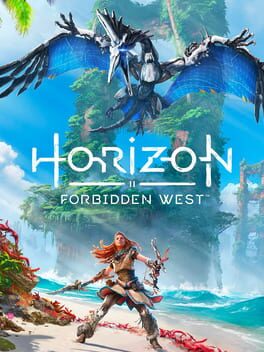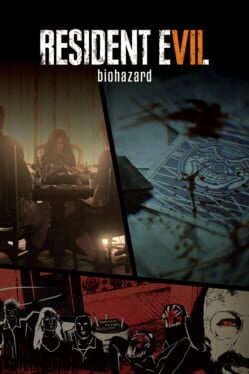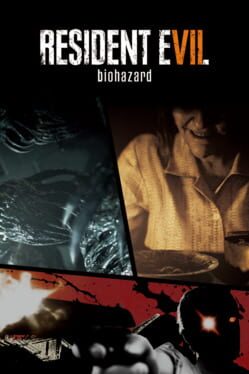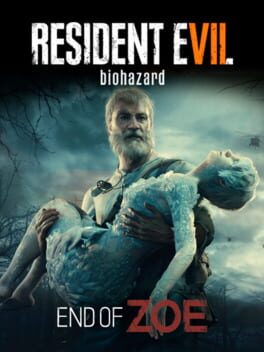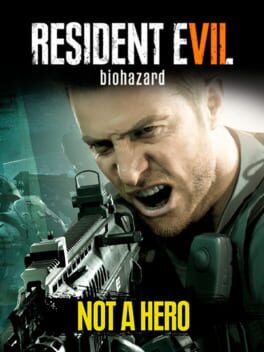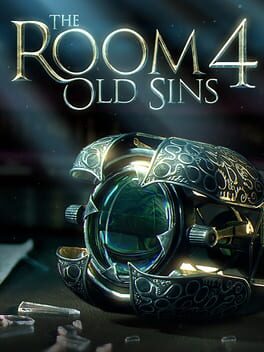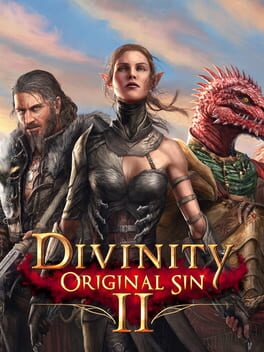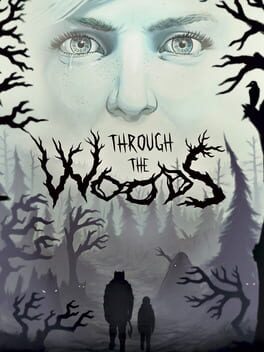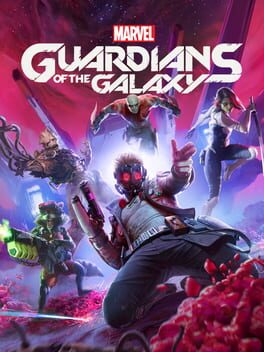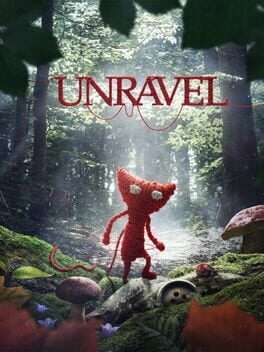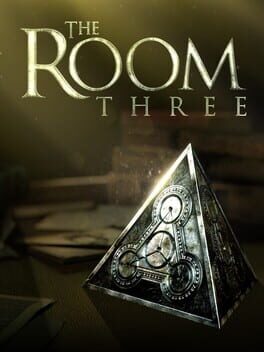ResidentRed
2023
I didn’t know what to expect with Dave the Diver, but I’ll admit it surpassed all expectations. Collecting fish by day and managing a sushi restaurant by night seemed simple enough until more and more content became available, right up until the end—several minigames, farming, side quests along with the main plot, it was just brimming with things to do. The thing is, though, a lot of it was optional and could be ignored, so it wasn’t as overwhelming as it first appeared.
When focusing on the core gameplay loop, it was pretty addictive with roguelite elements. The various bosses were enjoyable and I found the main story to be full of humour and charm. My only criticism is that it dragged a bit, its seven chapters making it lengthy, with grind on top of that to get all achievements.
When focusing on the core gameplay loop, it was pretty addictive with roguelite elements. The various bosses were enjoyable and I found the main story to be full of humour and charm. My only criticism is that it dragged a bit, its seven chapters making it lengthy, with grind on top of that to get all achievements.
The Banned Footage DLC of Resident Evil 7 offered new modes and minigames, making it the most varied of any Resident Evil game.
21: A Saw-inspired game of Blackjack. I loved it and spent quite a bit of time playing. The difficulty really reached unforgiving levels.
Daughters: Play as Zoe in a prologue showing what happened to the Bakers when they first encountered Eveline. I really liked it, especially seeing the family before they were infected.
Jack's 55th Birthday: A silly minigame about searching for food to feed Jack. Capcom really went wild here.
21: A Saw-inspired game of Blackjack. I loved it and spent quite a bit of time playing. The difficulty really reached unforgiving levels.
Daughters: Play as Zoe in a prologue showing what happened to the Bakers when they first encountered Eveline. I really liked it, especially seeing the family before they were infected.
Jack's 55th Birthday: A silly minigame about searching for food to feed Jack. Capcom really went wild here.
The Banned Footage DLC of Resident Evil 7 offered new modes and minigames, making it the most varied of any Resident Evil game.
Nightmare: Survive waves of enemies while upgrading weapons and other equipment by collecting scrap metal. It was fun for a couple of hours.
Bedroom: An escape room with the added threat of Marguerite. Tense, puzzle heavy, and one of my favourites.
Ethan Must Die: Ultra difficult mode, the aim to reach Marguerite in the greenhouse and defeat her. I wasn't able to do it, but then I didn't put much time into it.
Nightmare: Survive waves of enemies while upgrading weapons and other equipment by collecting scrap metal. It was fun for a couple of hours.
Bedroom: An escape room with the added threat of Marguerite. Tense, puzzle heavy, and one of my favourites.
Ethan Must Die: Ultra difficult mode, the aim to reach Marguerite in the greenhouse and defeat her. I wasn't able to do it, but then I didn't put much time into it.
Just as Not A Hero tied up loose ends with Lucas Baker, End of Zoe dealt with Zoe's fate in the aftermath of the main game. Joe Baker took the mantle of protagonist, and his playstyle differed from the usual. Instead of conventional weapons, Joe relied on his fists as well as more crudely crafted equipment. It shook things up, that's for sure, but was equally frustrating as it was enjoyable. The crocodiles in particular tested my patience.
I liked how Capcom experimented with melee stealth gameplay, though. It made for memorable DLC.
I liked how Capcom experimented with melee stealth gameplay, though. It made for memorable DLC.
Not A Hero was a different beast than the main game, and my least favourite of the Resident Evil 7 DLC. Dealing with traps and more powerful forms of mold enemies, Chris Redfield did what he does best: being a soldier. Going after Lucas Baker, Chris had access to an arsenal from the get-go, making the ordeal consistently combat heavy.
As said, I'd put it below the other DLC, just because the variety wasn't there due to being pure FPS.
As said, I'd put it below the other DLC, just because the variety wasn't there due to being pure FPS.
2018
The Room 4: Old Sins was the culmination of all previous games, simultaneously going back to its roots with a singular object being the main focus while still including an entire mansion with various rooms to step into just like the last instalment. The big difference was the new protagonist and storyline, but like the rest of the series the story had to be pieced together because it was all rather vague. The Null was definitely an interesting concept and I’ve always appreciated the Lovecraftian themes.
It was a good run—I don’t consider any of the four games to be bad. The physics were always satisfying, the puzzles always varied.
It was a good run—I don’t consider any of the four games to be bad. The physics were always satisfying, the puzzles always varied.
While the gameplay of Senua's Sacrifice isn't anything new—environmental puzzles and shallow combat—the depiction of psychosis was definitely unique and its most defining feature. Throughout the game various voices would commentate and either encourage or discourage Senua, a lot of the time incessantly talking over each other. Unfortunately, being sensitive to sound, the constant whispering really got to me and even made me turn it off a few times. It's just one of those things, I guess.
That said, I enjoyed the visuals, the creature designs, and the story for the most part. It also had a great atmosphere with elements of horror.
That said, I enjoyed the visuals, the creature designs, and the story for the most part. It also had a great atmosphere with elements of horror.
Divinity: Original Sin II was a TRPG I should've liked considering my tastes, but playing it in a group of four had the opposite effect. Rather than getting engrossed in the stories, it came across as confusing and, quite frankly, a slog to get through. By the end, I even felt some hate for it. But is it my fault? Absolutely, I should’ve known that not going at my own pace would’ve ended badly. Lesson learnt.
I might revisit it in the future, but for now I’ll try and forget it exists.
I might revisit it in the future, but for now I’ll try and forget it exists.
2016
Inspired by Norse mythology, Through the Woods had simple gameplay; just stay away from the scary mythical creatures of folklore. It was a walking sim in nature, and I detest that point nearly always being made against games. There’s nothing wrong with walking simulators, it’s just a genre, and like with anything else just don’t play if it’s not your thing.
Regardless, it had interesting environments to explore and some pretty exciting encounters that required sneaking or running. There were also collectibles and a couple of secrets. When it came to the story, though, I found it to be lacklustre overall but it didn’t ruin the few hours I got out of it.
Regardless, it had interesting environments to explore and some pretty exciting encounters that required sneaking or running. There were also collectibles and a couple of secrets. When it came to the story, though, I found it to be lacklustre overall but it didn’t ruin the few hours I got out of it.
Not only was Marvel's Guardians of the Galaxy a blast, but it was also nuanced—yes, the silliness was expected, but it didn’t shy away from character development and showing vulnerability in its characters. Speaking of its characters, the team dynamics were really great, especially their interactions with each other. Instead of having silent husks for companions, the sass and banter never stopped.
There was so much that excited me as I got further into it, from the little details of the story, to each new planet that offered weird yet wonderful flora and fauna. It’s hard not to consider it a prime example of a stellar single-player adventure.
There was so much that excited me as I got further into it, from the little details of the story, to each new planet that offered weird yet wonderful flora and fauna. It’s hard not to consider it a prime example of a stellar single-player adventure.
2016
Unravel was a lovely adventure with physics-based platforming and puzzles, its mechanics based around being connected to a thread and having to regularly increase its length to continue progress. It proved quite tricky at times, but extremely satisfying after figuring out the way forward. The environments were strikingly beautiful and the colours popped from the screen. Emotions ran high with its subtle story that delved into a family’s memories, exploring notable moments both good and bad.
All in all I'd call it wholesome if a little frustrating in terms of gameplay. It relied a lot on trial and error, but thankfully autosaves were relatively frequent.
All in all I'd call it wholesome if a little frustrating in terms of gameplay. It relied a lot on trial and error, but thankfully autosaves were relatively frequent.
2015
The Room Three expanded its world even further with a mysterious mansion to explore, its various rooms and hidden areas offering a wide variety of puzzles, as to be expected with the series. A new mechanic was the ability to go inside objects and manipulate them from within, which was pretty cool. It also included four endings, depending on if the player discovered certain items.
It was impressive to see the series evolve with this instalment, as well as the developers trying new things. They could have just stuck with more of the same as the previous two games, but they actually put in the work to add new creative features. I liked it, the story even piquing my interest.
It was impressive to see the series evolve with this instalment, as well as the developers trying new things. They could have just stuck with more of the same as the previous two games, but they actually put in the work to add new creative features. I liked it, the story even piquing my interest.
2017
Not only was the world of Horizon Zero Dawn beautiful to look at and explore, but the combat was electrifying, with the selection of machines only getting more complex with progress—battling a mechanical T-rex never failed to be epic. Shooting off individual components added something new, and by my standards it was unique. While the story involved elements that are familiar in the science fiction genre, the writing was no doubt excellent in its execution; feeding titbits until everything fell into place.
I adored everything about it, and even found its Open World Syndrome to be manageable; even though it had the usual busywork it wasn’t an overwhelming amount.
I adored everything about it, and even found its Open World Syndrome to be manageable; even though it had the usual busywork it wasn’t an overwhelming amount.
2018
Marvel's Spider-Man was special to play, one of the reasons being there's genuinely nothing like web-swinging around New York; I remember loving the older Spider-Man games for this reason too. This time around it wasn't the only impressive thing about the game, though, as it kept me on my toes with a compelling story and epic scenes. I was in a state of awe a lot of the time as everything just became more crazy. The combat was also extremely enjoyable, the freedom to move around with ease making it all the more fun.
Other than that, there was a lot to do—side activities and things to collect. Thankfully, its Open World Syndrome wasn't the most egregious.
Other than that, there was a lot to do—side activities and things to collect. Thankfully, its Open World Syndrome wasn't the most egregious.

